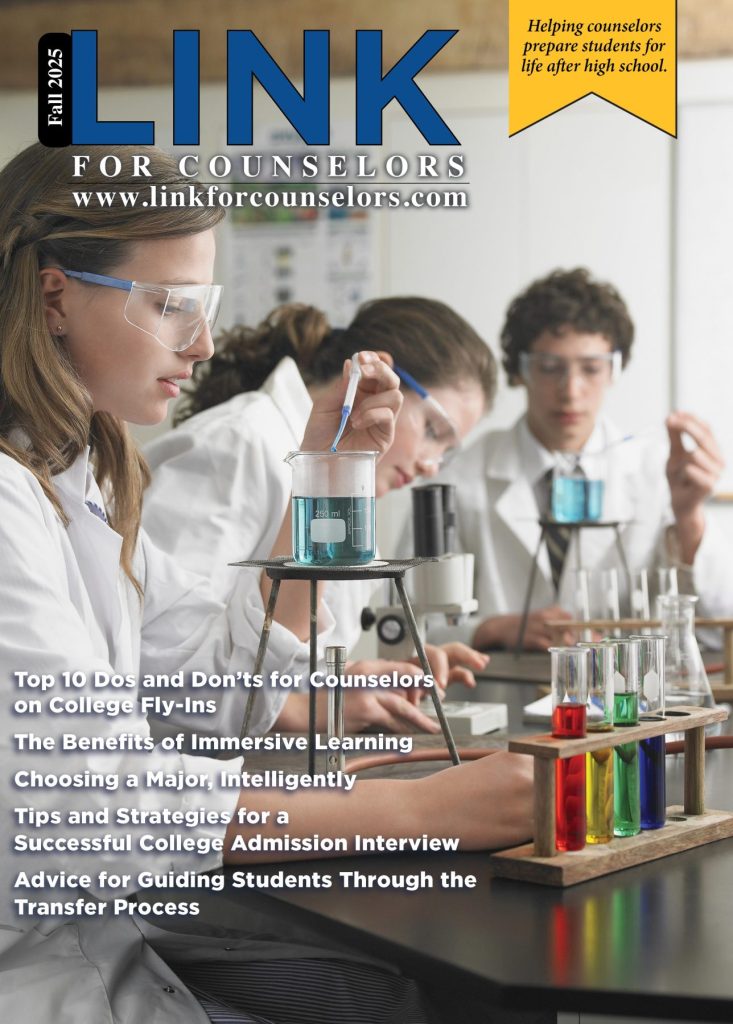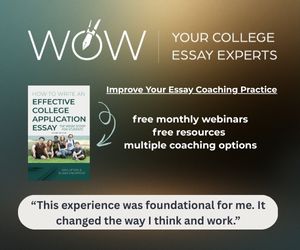Are Your Students Considering Taking a Gap Year Off Before College?
Higher education opens doors to life-changing opportunities, but for some, it’s a moonshot dream. Last year, 56% of students’ college decisions were impacted by FAFSA application delays. Low-income and first-generation college students are especially feeling the barrier as lack of financial aid continue to make higher education out of their reach.
These challenges, coupled with the fact that many are reassessing the value of a college education, are pushing students to take a gap year for a variety of reasons: saving money, prioritizing family responsibilities, or simply reconsidering their career pathway.
If you have any of these students at your school, this guide will show them how to turn a setback into an opportunity—their low-cost, flexible college launchpad framework—so they can bounce back stronger come next enrollment season.
Here are 5 ways your students can turn a gap year into a college launchpad year:
1. Earn Transferable College Credits
Do your students know they can start taking courses even before they officially begin college? Universities and colleges now partner with online platforms to offer low-cost, transferable college credits to students so they can get a head start on your degree, save money on tuition, and ease your transition into college.
Here are a few examples of how taking online college credits can be helpful:
- Your student can enroll in general education courses that meet the requirements of their desired program in the future and help them graduate faster. Choose from classes such as Intro to Psychology, College Algebra, and more.
- Taking courses can be an opportunity to prepare for the academic rigors of a university.
- They will also get a feel for whether the programs they are applying to are the right fit for them. Try out courses in their major of interest to see if they like it—try taking up Intro to Web Development if they are into Computer Science or an Intro to Criminal Justice course if they want to take up Criminology.
Before choosing classes, they should take the time to research and understand the transfer credit policies of their target universities and colleges. These are often available on their websites or application packets—or they can contact the admissions office directly.
2. Gain Skills That Boost College & Career Success
A gap year is also a chance to build skills that can set them up for success not only in college but even after graduating and into employability.
Target Skills That Align With Their Degree Path
Start by identifying skills commonly expected in their intended major. For example:
- Looking to study computer science? Take a Python programming or Database Fundamentals classes.
- Applying to an English degree program? Hone skills in English composition or advanced technical writing.
- Want to get ahead of business or communications degrees? Try taking classes in public speaking or digital marketing.
Remember—they don’t need to overload their gap year. Check flexible options that allow them to still be in control of their schedule and ensure they are gaining the right skills aligned with their goals.
Showcase What They Learn Through Real Work
Learning is more powerful when they apply it. On top of learning, their gap year classes may include guided projects that will help showcase their new skills—seize those opportunities.
Or this could be a great time to pursue their passion and build your digital portfolio. They can:
- Launch a blog that covers topics in their field of interest and showcases their writing skills.
- Start a self-directed research project and showcase their theoretical and practical understanding of concepts.
- Develop a website or an app that highlights their technical skills.
This output will provide admission teams with something concrete to evaluate. As a result, they will increase their chances of being accepted into their target institution. More than that, this will build their confidence to undertake big projects that can impress future employers.
3. Work or Intern Strategically
Exploring and building real-world experiences don’t need to be expensive. As they are preparing for university life, work and internships can turn their “gap” into a growth story—while they are earning money.
Start with Jobs That Teach Transferable Skills
They should look around them to see what job opportunities are available. They can start with roles such as:
- An office worker tasked to assist in general office maintenance, such as organizing files, answering customer queries, or communicating and maintaining schedules.
- A tutor providing academic support to younger students in a variety of subjects.
- A library assistant helping out with organizing academic resources, helping find study materials, and supporting research efforts.
These roles may not be big at first sight, but they will teach them how to build transferable skills such as communication, adaptability and flexibility, time management, conflict resolution, and accountability. These workplace skills are some of what colleges and employers value.
Pursue Internships and Gap Year Programs That Align with Their Interests
They can also apply for paid internships to strengthen their college application. It can even open doors to after-graduation employment offers!
Aside from the traditional company internships, virtual internships are also becoming widely accessible—these can help them save more time and costs.
Lastly, there are paid gap year programs that they can sign up to where they can take the whole gap year to focus on building a specific skill or work on a specific role as they continue saving up for college.
4. Build Their Network
For those starting out, networking is less about selling yourself. It’s more about being genuinely curious and being open to learning—asking smart questions, listening actively, and expressing appreciation.
Start with people they already have access to: local educators, community leaders, recent grads, or even friends of family. Surrounding themselves with mentors, peers, and professionals can make a difference in shaping their future opportunities.
Use LinkedIn to Start Building Networks Early
Professional social media platforms like LinkedIn can be effective portals to grow your professional relationships even as a student.
They can use these platforms not only to expand their network but also to publish their portfolio and gain recognition for their skills and talents. These are powerful tools that can help kickstart their online presence in the academic and professional space.
Engage in College Events and Online Communities
If they are nervous about college, they can join relevant events and communities that help them gain more clarity about their target campus, degree programs, and college life expectations.
Attend student meetups or free webinars through platforms such as Facebook, Reddit, or Discord. Make each attendance meaningful by introducing themselves, asking questions, and following up after the events.
5. Level Up Their College Application Game
With more time to reflect, plan, and act with intention, they can then strengthen their college application and refine their goals to set them up for success well beyond freshman year.
Start FAFSA Prep Now to Avoid the Crunch Later
The 2025-26 FAFSA rollout includes simplified questions and a new Student Aid Index (SAI), but that doesn’t mean it’s stress-free. Start preparing by:
- Creating their FSA ID at StudentAid.gov
- Reviewing and filling out the 2025-26 FAFSA application form
- Gathering previous tax and government documents
- Finalize the list of schools to send their FAFSA to
Filing early maximizes their chances of receiving need-based aid, work-study opportunities, and institutional grants.
Set Academic and Personal Goals with Intention
Revisit their initial goals and strengthen them with better structure. Tools like Notion’s College Plan template provide them with an easy way to track weekly and monthly progress.
Some goal ideas:
- Weekly: Finish a task related to a project, write a journal, or study a module for a certification.
- Monthly: Complete a self-paced course, revise their personal essay, or accomplish a college requirement.
These small goals will help them build a rhythm and establish a better work ethic. And by diligently documenting them, they will gather valuable insights and content towards the end of their gap year that are perfect for interviews and applications.
Write an Essay That’s Personal—Not Performative
A polished college essay is one thing, but a personal statement that accurately reflects their voice will attract admission officers. The most compelling essays are specific, honest, and genuine.
Thanks to their gap year, they can write from real experience. Consider:
- A problem at work that they have solved and how they gained new skills from it.
- A significant moment during their internship that changed their mindset or goals.
- A “montage” of daily or weekly lessons across their projects, classes, or jobs that captures them as a whole.
Don’t wait for inspiration. Draft imperfect journal entries every day, revisit them for nuggets of wisdom, and refine them into a memorable essay.
Prepare Financially by Learning How to Budget
Getting into college isn’t the end goal—it’s only the start. Learning how to be financially smart will help as they adjust to college life.
Whether they saved up from their gap year work or are expecting financial aid, knowing how to budget properly as a student can help them ease their college costs as they are working towards their degree.
See Study.com’s original blog post here which includes some great graphics too: https://study.com/resources/college-gap-year-guide.html




